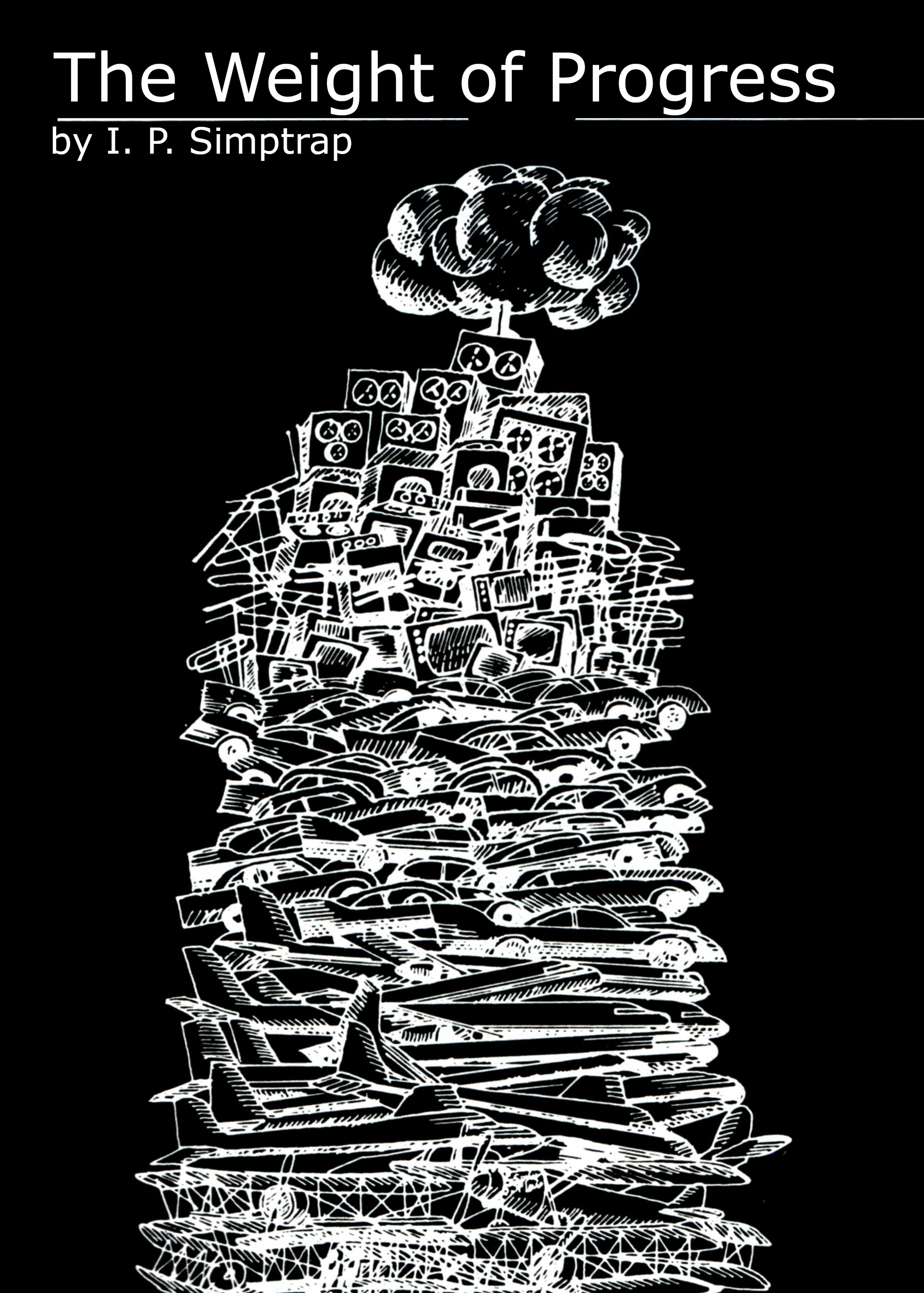
The Weight of Progress
By I. P. Simptrap
Everyone was panicking. Everyone except the old man.
He was on every flight, from every place to every place. He sat there not being noticed by anyone at any time. He never took up the armrest. He never leaned his seat back to crush the knees of the tourist behind him. He never leered at the air stewards. He was calm, he was silent, he was focused. He disrupted no one, and no one disrupted him.
If the old man wasn’t on the flight, there would be no flight. You see, the old man kept the planes in the air.
No one knew it was him. Not the pilot. Not air traffic control. Not even the guy who x-rayed the baggage. All they knew, aerodynamics, jet fuel and millions of dollars of science kept the planes in the air. The old man knew better. He knew it was him and his mind.
You see, the old man has an ancient mind. He isn’t just old, he’s eternal, like atoms or the cold of the deep sea. He is not really a man, more a presence made human. He was first a dream, a small inkling of an idea. He appeared on this planet when the first person looked at the first bird and thought, “I wish I could fly.” Obviously, the thought was not in words, and the desire was not so easily translated, but that is how he came about, in essence.
He floated around the world in many guises, in many forms. He slipped into ears and out again, inhabiting dreams and stories, poems and plays. He was the one who gave Icarus wings, gave Perseus a Pegasus, and inscribed stories of King Bladud flying over Trinavantum. He was the spirit that slipped all those visions of flying machines into Da Vinci’s head, hoping he would be the one to make a dream reality.
It wasn’t until he sat with the Wright Brothers in 1903 and felt the world bear aloft that which he had planted in the heads of man for so long. Ever since then, from the creaky biplanes of the early 20th century to the supersonic rockets of the 21st, he has sat there, in some dusty corner, on some economy seat, in some bomb chamber, or, in one particularly famous case, on the wing. Ever present as the dream that has been in man’s mind since noticing the sky for the first time, inscribed with light, illustrated with clouds.
He may not be needed anymore. There may be enough banality now found in dreams of flight for his presence to be able to sneak out of the back door. He could go hang on a cloud, sit in a nest, walk over mountains, looking up at the contrails of planes that he helped to hold aloft. But, he likes it in the air, on the commercial flights, the military flights, the pleasure cruises through the sky. He enjoys being up there, overseeing the dream he made real.
Sometimes the dream fails. The old man knows this is always a possibility. It is why he enjoys flying so much, so often. He wants to be there, he likes to bear witness to these moments when the fragile certainty of science breaks apart, falling like a fine powder to the Earth. It is a perverse enjoyment, a sweet lemon, a snag of skin loose on the roof of your mouth curling the tongue. Now he has pushed the dream into the world, he lives for these moments, such as now. He is say unnoticed, smile playing across his face, as the plane, so full of those who only moments ago were certain in their faith, they believed themselves safe, blessed to stand on the shoulders of science, obliviously receiving the reward of so many dreams trialled, tested and tried again. The people panic. They scream and wail and pray and shout and claw at the walls of their not-yet grave. These people don’t want to die. They don’t want to have their lives engulfed by the quick inferno of a few tons of steel and plastic smashing into the ground, the ground from which they now feel should never have lifted.
The old man, he doesn’t care for the people’s drama. He is there in every disaster, in every landing gear that fails to lift, in every missed blip of the radar. He falls with the planes he has helped to bring aloft. And, as he falls, as he feels how gravity brings all back into its embrace, and how dreams must find a way to free those who sleep, he winks at Death, his daughter, the one he loves the most, who accepts with grace the burden of his gifts.

